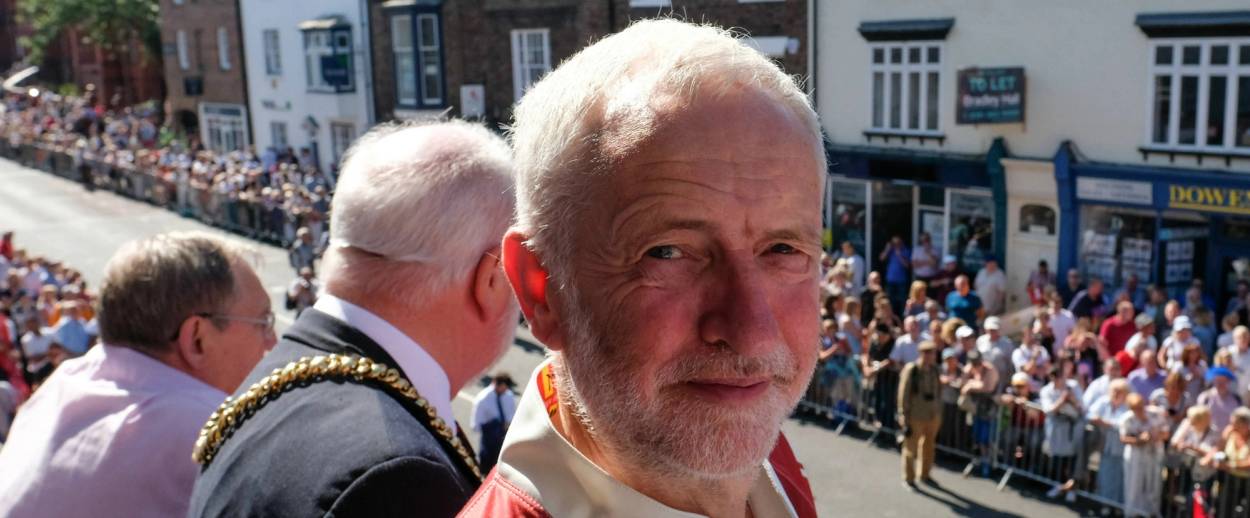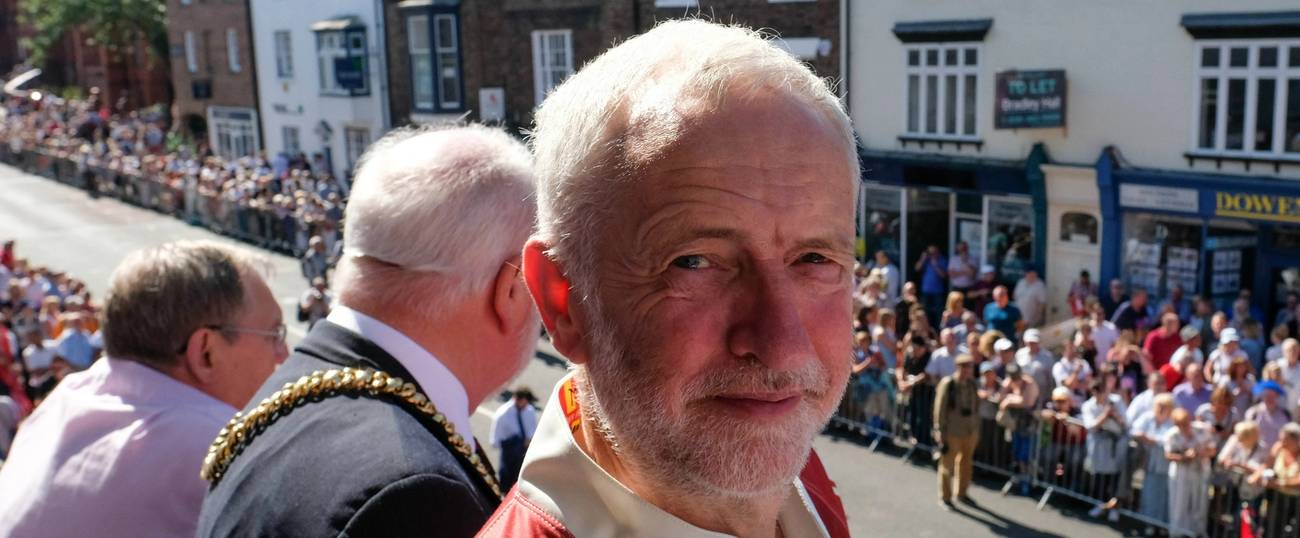Jeremy Corbyn’s Scheduled Address to the Jewish Community Canceled
After the Labour leader allegedly fails to bother to invite the Jews




The Labour party has had a terrible, horrible, no good, very bad week, with one senior member blaming the Jews for fabricating claims about anti-Semitism in the party, another blaming the Jews for drinking blood, and a third blaming the Jews for being secret agents of the Mossad. To address these concerns, the party’s leader, Jeremy Corbyn, announced earlier this week that he will deliver a speech on Friday; but the speech, the British Jewish press now reports, has been canceled, apparently because Corbyn never got in touch with any of the Jewish community’s leadership.
On Thursday, according to the Jewish Chronicle, Corbyn’s office approached the Jewish Museum in Camden and, with less than a 24-hour notice, asked them to host the event. The museum reportedly agreed, in large part because it was reassured by Labour Party officials that all major Jewish organizations, including “the Board of Deputies, the Jewish Leadership Council, the Community Security Trust and a number of prominent rabbis” would be present at the event.
“It later emerged no contact had been made with the communal groups,” the Chronicle reported. The newspaper’s request for comment from Corbyn’s office went answered.
Writing in the New Statesman, columnist Stephen Bush cites a “well-placed source” describing the current internal debate inside Labour as a “shitshow,” with even some of Corbyn’s closest supporters baffled by his refusal to properly address accusations that the party now tolerates if not condones anti-Semitism. “The issue at stake” Bush wrote, is that Corbyn himself regards the row as a foreign-policy issue, confined to the question of how Labour members can talk about Israel, while his critics primarily see it as a domestic issue, confined to the need to reassure British Jews of Labour’s intentions.”
This insight, as Anshel Pfeffer wrote this week in Haaretz, is “hugely revealing,” explaining why Corbyn, the head of the opposition, is focusing his entire political energy not on taking the Conservative government to task on Brexit and other major issues but on fighting an utterly avoidable battle with the country’s Jewish community. But the analysis hardly goes far enough: The more you examine Corbyn’s record, the more you begin to suspect that his aversion to Jews has little to do with policy of any sort and more with the kind of deep, systemic rejection that is more theological than political.
In 2011, for example, Corbyn signed a parliamentary motion calling on Britain to rename Holocaust Memorial Day the Genocide Memorial Day–Never Again for Anyone. The proposal, which was never debated in Parliament, argued that the Holocaust was not and should not be seen as a uniquely Jewish tragedy. “This House welcomes the Never Again for Anyone Initiative by survivors and descendents [sic] of survivors of genocides,” it read, “which declares that every life is of value; notes that disabled people were the first victims of Nazi mass murder, that working class activists and trade unionists, many of whom were Jewish, were the first to be sent to concentration camps, and that Nazism targeted not only Jewish but also Roma, Jehovah’s Witnesses, lesbian, gay and bisexual people and others they deemed undesirables.”
And, as the Daily Mail reported earlier this week, Corbyn had also attended a 2010 pro-Palestinian protest, comparing Israel’s blockade of Gaza with the Siege of Leningrad. It’s of little wonder, then, that Corbyn would insist to amend the widely accepted definition of anti-Semitism provided by the International Holocaust Remembrance Alliance in a way that condones comparisons between Israel and the Nazis. Anyone who believes that Hitler’s campaign of terror against a civilian population, which left more than a million dead and many more gravely wounded, could in any way be likened to Israel’s attempt to defend itself against a terrorist organization striking from an independently governed territory Israel had handed back more than a decade ago isn’t really interested in policy, or, for that matter, in observable reality. Instead of trying to analyze his motives, then, Corbyn’s allies and detractors alike would do well to approach him as what he so clearly appears to be, a zealot animated by an irrational obsession with a small group of people he perceives as cosmically malignant. As anyone who has ever studied any form of religious extremism knows, it makes little sense to try and rationally persuade a fanatic. The best you can do is try to anticipate, and block, his next move.
Liel Leibovitz is editor-at-large for Tablet Magazine and a host of its weekly culture podcast Unorthodox and daily Talmud podcast Take One. He is the editor of Zionism: The Tablet Guide.